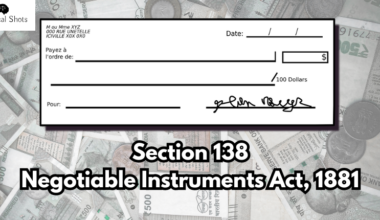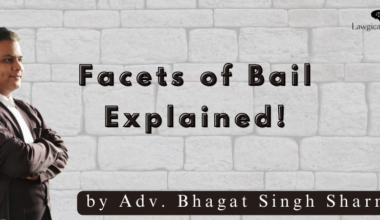Among the many Intellectual Property Rights, Trade Mark has more at stake as compared to the others. There is this famous dialogue – “Naam Mein Kya Rakha Hai?” (Meaning – What’s there in a name?). However, it is an undeniable fact that name and fame go hand in hand. For someone famous, their name carries a lot of goodwill. When we talk about Trade Marks, it’s all about that one name, mark, etc. which distinguishes the business and brings legal protection. To have a better idea for our readers, Ms. Ridhi Khurana had a quick conversation with Advocate Deepika Khinder on behalf of Lawgical Shots, who in turn explained the nitty gritties of Trade Marks Law in India. Here is the glimpse of what we got:
1. While choosing a logo or name for a business, what are the basics to be kept in mind in order to succeed in a Trade Mark application?
Advocate Deepika: Firstly, a Trade Mark should be unique, have distinctiveness, be a word or mark which does not already exist in the market. It should be something which you created with your own intellect. Such marks get Trade Mark protection sooner. In fact, among the types of Trade Marks, the best one is a fanciful trade mark, a word having no meaning. One should consider a meaningless name. For example, if you improvise a famous brand like Amul, making a new name for your business like Amulya or Amulite, you are supposedly stealing the goodwill of Amul. Such names should be avoided to stay away from any future troubles.
2. As a new business, when should you think of applying for registration of Trade Mark?
Advocate Deepika: It is best to apply for registration of a trade mark when you start a new venture. The reason being that your brand value will hike, your product or services will be famous with time. At that point, someone else may use the same for making unauthorised gains. By having a Trade Mark in place, you can stop them, seek injunction against the use of your trade mark, and claim for damages.
In case of otherwise, you may apply for passing off, since prior users or a mark are favoured during the legal proceedings in Trade Mark related disputes. However, all you can get is the relief of injunction. That’s why having Trade Mark registration is recommended for businesses.
3. Since you have quite some experience with Trade Marks, what is the most different, if not weird, mark or word which someone applied for trade mark registration?
Advocate Deepika: These days, people are getting so creative and using taglines for Trade Mark applications which we may be using in casual conversations. A couple of examples are “Kuch bhi chahiye” and “Mirchi Aisi Jo Aag Lagaa De” for red chilli powder . These are not unique at all but descriptive. Such marks are weird, and may not even help with building the brand value of the business. Hence, it is advisable not to use such Trade Marks.
4. What are the most common reasons for rejection of application for Trade Marks registration?
Advocate Deepika: Usually, when someone tries to encash the goodwill of someone else, such Trade Marks are more likely to be rejected. As mentioned above, if someone uses the goodwill of Amul to create confusion with ‘Amulite’, Abidas as against Adidas, getting Trade Mark is a secondary aspect. Such brands may easily get an injunction against by such big businesses.
5. If I am running a business which started somewhere 50-60 years ago, which is famous by its name, do I still need a Trade Mark?
Advocate Deepika: That totally depends upon the business owners. Having a registered Trade Mark is beneficial, since it provides legal protection to a brand. It also helps build brand value and brings a distinct identity for the same. You can take legal action against anyone using your name by claiming damages, seeking injunction, and also rightfully seek compensation for the profits made by using your brand name. In the absence of a registered Trade Mark, you can only apply for passing off, to get the ultimate remedy of injunction. In addition, it will be your responsibility to prove to the Court of the fact that you are the prior user of the said mark.
6. When it comes to Courts dealing with Trade Mark disputes, what is something that brings a relief for the business owners?
Advocate Deepika: For a business whose mark is being misused by someone else, be it a similar one or a counterfeit, the first aspect is to protect goodwill and stop them then and there. For that, they can get injunction orders from the Court. You can also seek damages sustained by the business. The account of profit, means the profits earned by encashing your Trade mark, are also awarded to the business owners having the rightful Trade mark. These are the usual remedies available under the laws for Trade Mark owners.
7. What are the major grounds for rejection of Trade Marks?
Advocate Deepika: The exceptions under Section 9 of the Trade Marks Act, 1999 particularly provide for the grounds for rejection of Trade Mark. It includes overly descriptive marks suggesting the quality or quantity of the goods. Such descriptive marks may be granted in rare cases for brands which have already established themselves so that people/markets can exclusively relate the term with the brand. Such marks are said to have acquired distinctiveness with time, due to which, such marks may be registered. An example in this regard is Coca Cola, which even after including the term ‘Cola’ has established a name in the market.
If you still have some doubts and wish to know more about Trade Marks, connect with Advocate Deepika Khinder. If you have some inputs or suggestions for upcoming blogs or wish to write for us at Lawgical Shots, feel free to start the conversation at lawgicalshots@gmail.com.








